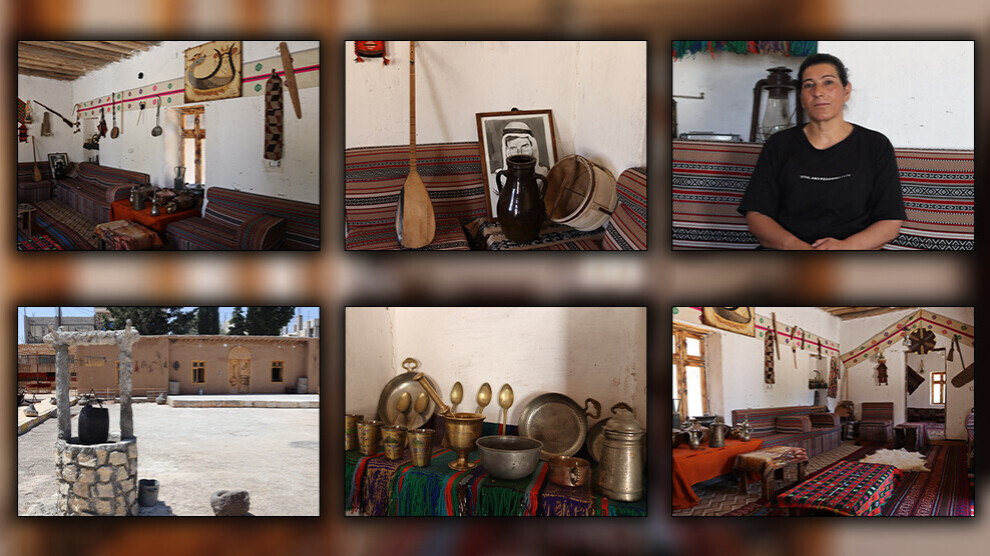Dengbêj House preserves culture of Kobanê
Dengbêj House built in Kobanê aims to preserve, revive and promote the culture and art of the people in the city.

BERÇEM CÛDÎ
Kobanê- The Baqî Xido Culture and Art Center and the Culture and Art Board in Kobanê began to build the Dengbêj House on June 3, 2023. The construction of the house lasted six months. The house made of clay has three rooms decorated with hand-made carpets, wooden cups, spoons, trays, prayer rugs, bowls, jars, erbane (a musical instrument), drums, rifles and many other ancient objects symbolizing the culture in Kobanê.
Dengbêj House is an opportunity to modernize the culture of the region, said Mehbûba Eto, a dengbêj (Kurdish singer, storyteller) and member of the center. “The construction of the Dengbêj House lasted six months. This house was built to become a culture and art center for women, young people and art lovers. Dengbêj House has such a characteristic that it attracts everyone's attention and becomes a painting revealing the rich culture of Kobanê. We built the house by using clay because our grandparents used to build their houses by using clay. The house will never allow our culture to disappear.”
‘It is a reflection of our culture’
Pointing to the objects used to decorate the house, Mehbûba Eto said, “We faced difficulties in finding ancient objects to decorate the house because people want to keep ancient items with them. We collected the ancient objects from many villages. We still make great efforts to find ancient objects. People like the house and they come here every day to see each other. I can say that this house is a reflection of the culture in Kobanê.”
‘We should pass down the culture of Dengbêj to next generations’
Women also worked in the construction of the house. “As women, we did our part in the construction of this house, especially in collecting ancient objects. When people visit the Dengbêj House, they immediately feel and see the culture, production and creativity of our mothers. The construction of the house is a great opportunity for young people and children to get to know their culture. We should pass down the culture of Dengbêj to next generations.”
